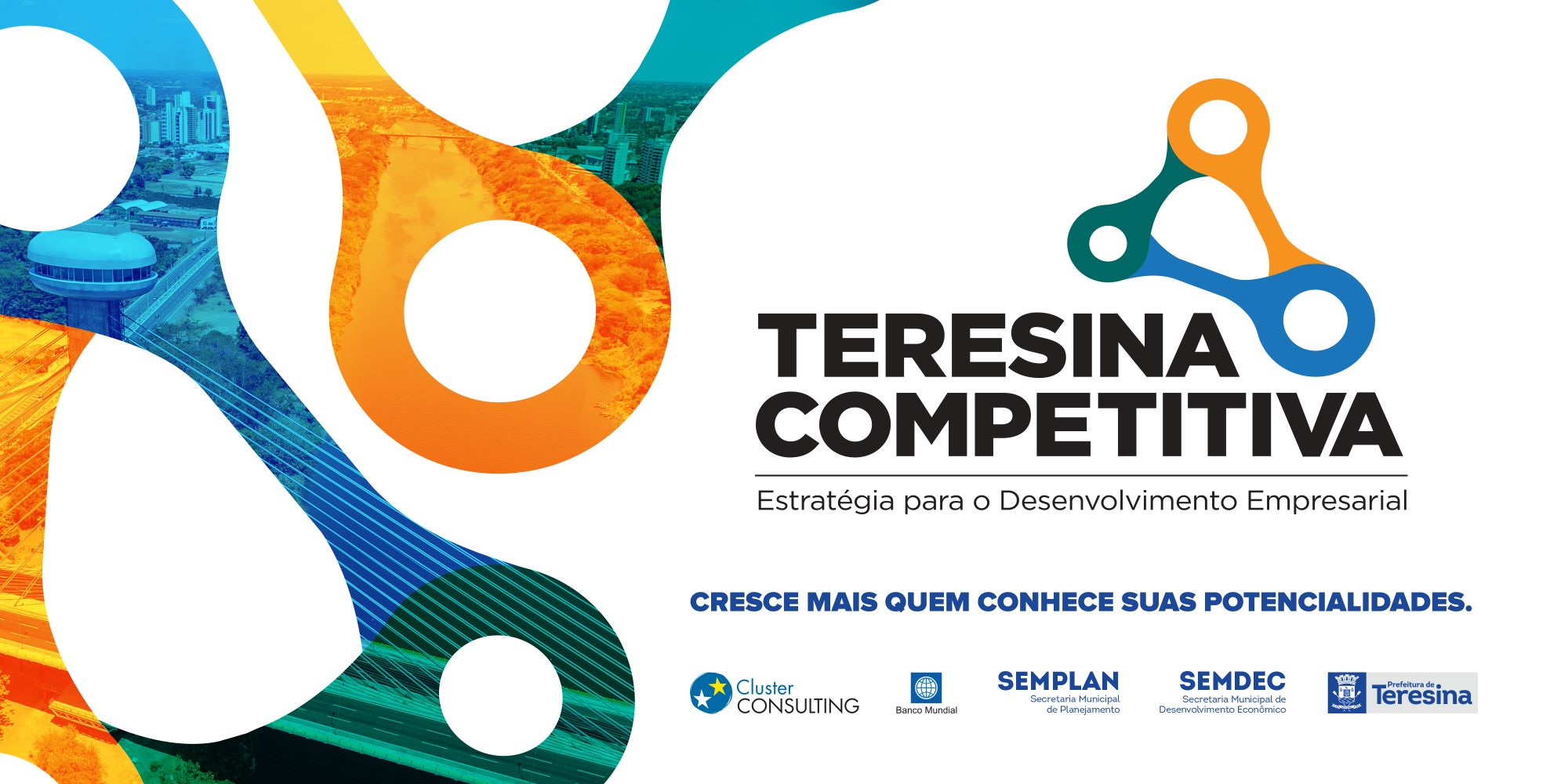The Teresina mayor's office hired Cluster Consulting to execute a Competitiveness Program in clusters in the city of Teresina.
The objective of the program is to develop clusters of health services, fashion and educational services, in addition to training the city council and associated institutions (SEBRAE-PI, State Government, FIEPI, BNB, ..) on competitiveness and clusters. The project began on July 27, 2020 and will develop short, medium and long-term development strategies. The project lasts 24 months and is financed by the World Bank.
Teresina fashion cluster
The fashion cluster has the potential to generate employment for a large number of people with reduced employability and therefore to generate a strong social impact.
The cluster initiative started in July and ended in December 2020, during these five months the project made a diagnosis of the cluster at a local level and of the industry at a global level, identified the main challenges, defined a strategic vision, and built a plan of action. action and a governance model of participatory training.
The cluster has more than 200 formal companies and generates more than 2000 formal direct jobs and as many informal jobs, the companies are specialized in casual fashion and jeans mainly. The chain also generates employment in formal and informal retail.
The global fashion segment is divided into three sub segments which are fast fashion, brands and haute couture / tailor-made, and these sub segments have different dynamics, strategies and success factors. Currently, trends in sustainability, omnichannel strategy, digital transformation and industry 4.0 are rapidly transforming the sector and opening up opportunities for new business models.
The main challenges pointed out by the entrepreneurs were innovation and design, efficient and quality production, expansion of sales reaching new markets or with new channels.
A vision of the future was built that positioned the Fashion Cluster with brands with identity, design, quality and service recognized in Brazil and this strategy of differentiation by brand requires geographical expansion to grow with customers with income and also to make the brand evolve.
On December 17, 2020, the action plan for the Teresina fashion cluster was presented, where a set of actions was presented to organize and streamline the cluster, improve the identity and positioning of brands, improve productivity and quality in companies , strengthen online sales and the expansion of sales to other states, as well as the acceleration of companies.
The formation of a private non-profit cluster association, led by entrepreneurs with the support of the institutions, was set up to be set up in the next sweet months.
50 business and institutional actors have participated in the project, who believe in the sector's potential to generate jobs and enhance Teresina's identity with its interpretation of more sustainable, creative and handcrafted fashion.
The project was developed during the pandemic caused by COVID-19 and all activities were carried out remotely.

Teresina Health Services Cluster
The health services cluster generates more than ten percent of the city's employment and has a high growth potential and also an impact on the well-being of society in the Northeast.
The cluster initiative started in July 2020 and ended in February 2021, during these seven months the project made a diagnosis of the cluster at a local level and of the industry at a global level, identified the main challenges, defined a strategic vision, and built a action plan and governance model of participatory training.
The cluster has more than 1,500 companies and generates more than 23,000 direct jobs, and although only 4% of the companies are highly complex they generate 50% of the jobs and this is where it has had the greatest growth in recent years.
The health services industry is rapidly evolving from a fee for service model to a fee for value model and moving towards a health care payment model. This is the past, present and future of health services that can be clearly visualized in the business models of leading companies in the sector or in regions such as California, Medellin and Bogotá.
The main challenges indicated by entrepreneurs are digitalization and innovation, improving quality and patient care, and connecting with customers and marketing. Teresina has to position itself again as a reference in the Northeast of Brazil, differentiating itself from new health care centers that serve by proximity.
A vision of the future of Teresina was built as a reference in the Northeast and North with health solutions with efficiency and excellence. Efficiency means greater integration between providers and the use of technologies to offer accessibility, speed, efficiency and convenience. Excellence means offering quality and resolution and it is achieved by applying knowledge, technology and processes of continuous improvement.
Based on the strategic vision, an action plan was built that has four main pillars: i) conformation of the cluster to facilitate interaction of actors in the value chain, generate and disseminate knowledge of integrated solutions, transform culture and drive actions, ii) promotion digitization, technologies and an innovation environment, iii) integrated solutions with higher quality and patient experience, iv) integration with the market with joint positioning and development of B2B and B2C marketing channels.
The formation of a private non-profit cluster association, led by businessmen with the support of the institutions, was set up in the next six months. The cluster association will allow companies to take the lead and be able to take advantage of the support instruments available at local, state, national and international levels.
80 business and institutional actors who believe in the health services project and revolution have participated in the project and who, in addition to seeking to gain competitiveness, also aim to improve the accessibility, quality and experience of millions of patients in Northeast Brazil.
The project was developed during the pandemic caused by COVID-19 and all activities were carried out remotely.

Brasil

